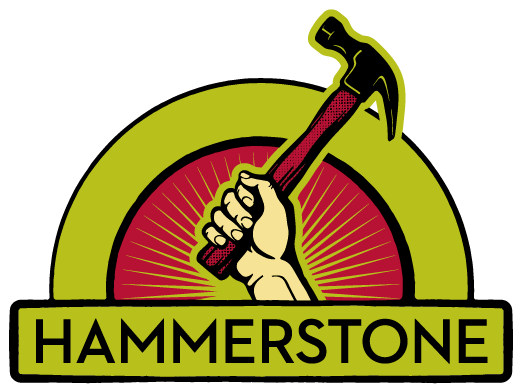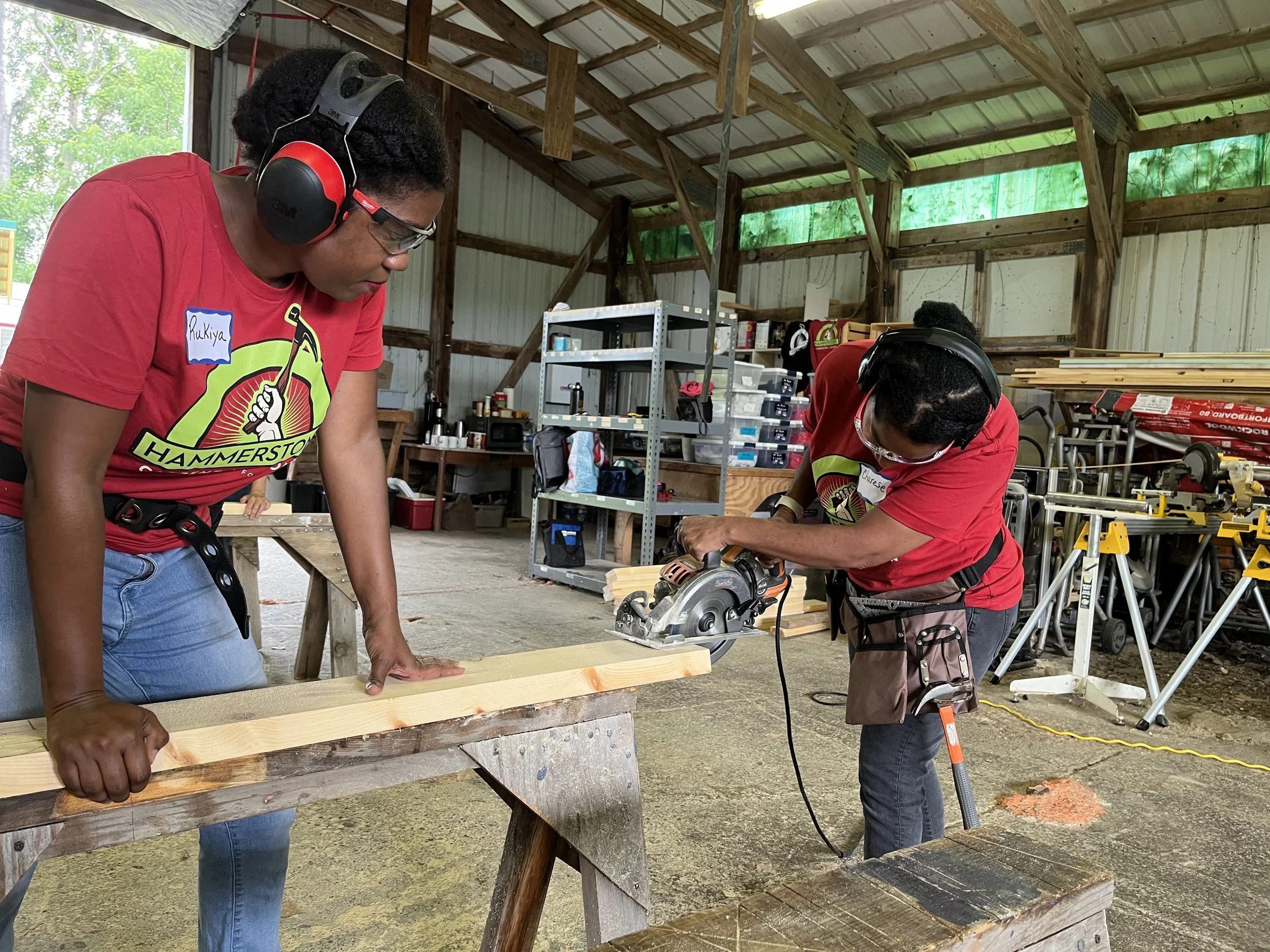Philosophy & History
PHILOSOPHY
Over the past few centuries, people have been losing skills as their functions are replaced by machines. While our standard of living has theoretically improved, many of us are dissatisfied with office jobs and the resulting disconnection from the physical work required to sustain ourselves.
While skills in the past were handed down from parents to children, this line has been broken for such a long time that we now have to reach across our community to gain vital experience from others. Hammerstone, as a farming enterprise as well as a carpentry school, is completely invested in sharing skills that increase the self sufficiency of community members.
One element of physical work is the process of creativity, intention and completion that goes into each project. As builders, we love our work. We get immersed in each project, and resurface to a feeling of pride in our accomplishment: finished pieces of function and beauty. Today, many items made of wood are machine-made in factories. As our culture re-learns to appreciate homegrown food and locally baked bread, Hammerstone School hopes to remind our community of our potential to create what we need with our own skills and strengths. In so doing, perhaps we can reestablish the value that these items deserve, and allow women and men to thrive both mentally and financially by fully engaging in our most basic pursuits.
Skills such as child rearing, farming, sewing, cooking and building all give the same creative and wholesome satisfaction to men and women alike. Unfortunately, in our culture, some of these skills are still considered “women’s work” while others are “men’s work.” Ignoring, for a moment, the disparate value that culture puts on women’s vs. men’s work, we at Hammerstone attempt to reverse the long term manifestation of the fact that boys are taught to build while girls are not. Part of the reason we teach carpentry to just women is to undo a societal trend of tremendous underemployment of women in the trades. The other reason we teach women-only courses is to give women a safe environment to learn, absent preconceptions about what they may or may not know or may or may not be capable of. The response from students from our first course onward have been overwhelmingly positive about the women only environment.
History
In her years as a carpenter, Maria has repeatedly found herself to be the only woman in building classes, usually the only woman on a job site. According to the Department of Labor, fewer than 2% of carpenters are women. There are some “women-to-work” programs addressing this issue, however these tend to focus on job-readiness rather than on craftspersonship and skills-building. Some craft-based carpentry schools offer a single course exclusively for women; these classes tend to be small, and not at the forefront of the school’s mission. Hammerstone School combines these experiences into a craft school teaching building classes that prioritize women as students and as future builders.
Teaching carpentry to women
While the idea of teaching carpentry for women classes had been percolating in Maria’s mind for quite some time, it wasn’t realized until the winter of 2012-2013 when a friend presented the perfect project around which to organize the inaugural classes: a tiny house. Maria designed two courses around this house: the first to frame the tiny home, and the second to work on trim and interior detailing. The tiny house classes quickly led to other opportunities: a two-day introduction to carpentry skills course, and a cider-press building workshop. With the success of that first year, we decided to expand our offerings; with a new schedule, we hope to also expand the geographical reach of our school so that more women from around the country are able to get an introduction to building in a safe and enjoyable environment.




